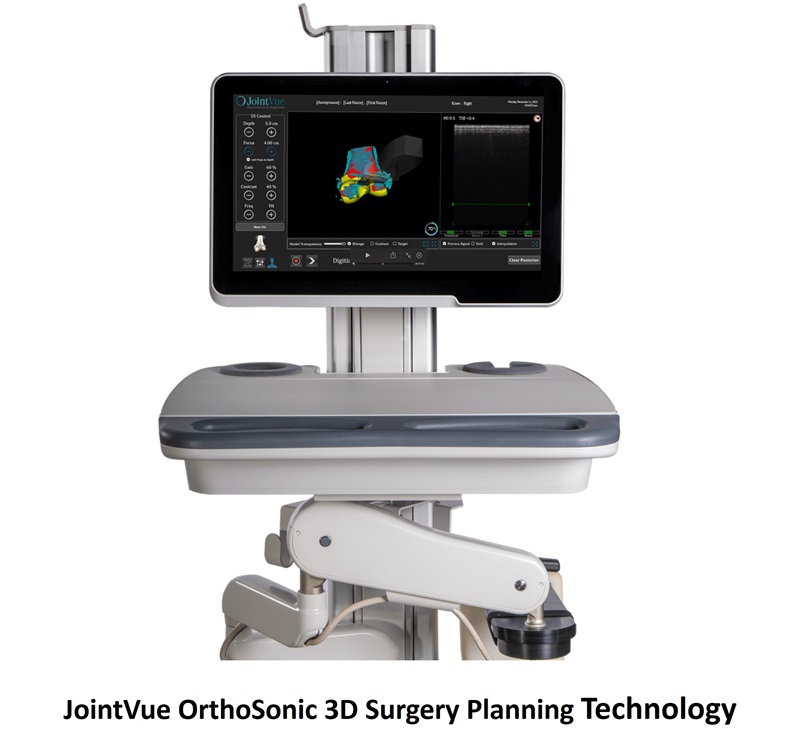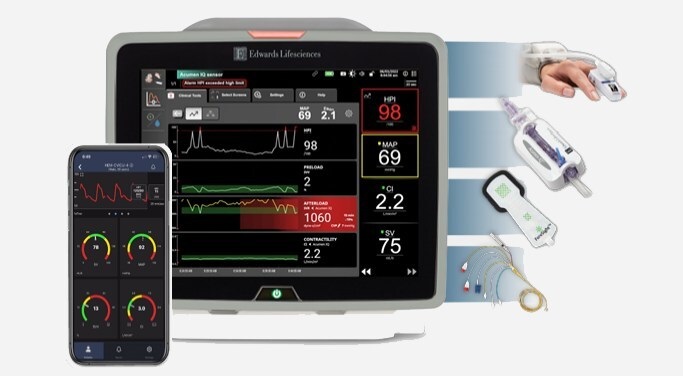Potassium Intake Tied to Lower Stroke Risk
|
By HospiMedica International staff writers Posted on 16 Sep 2014 |
A new study suggests that an inverse relationship exists between self-reported dietary potassium intake and stroke in postmenopausal women.
Researchers at Albert Einstein College of Medicine (New York, NY, USA) conducted a study that analyzed data regarding data from 90,137 Women's Health Initiative (WHI) enrollees (mean age 63.6), who were followed for an average of 11 years; all women included the study were stroke-free at enrollment. The mean daily reported dietary potassium intake was 2,611 mg; Black women, current smokers, and nondrinkers of alcohol reported lower dietary potassium intakes, while women who reported two or more exercise sessions a week had greater dietary potassium intake than those who reported limited or no activity.
The results showed that women who consumed the most potassium each day had a 10% lower overall risk of mortality, a 12% lower overall risk of all stroke, and a 16% lower risk of ischemic stroke when compared with women consuming very little potassium. In addition, the effect on ischemic stroke was more apparent in women without hypertension, among whom there was a 27% lower risk; there was no association with hemorrhagic stroke. The study was published on September 4, 2014, in Stroke.
“Women with hypertension had a lower total mortality risk with higher potassium intake but no lowered risk of stroke, suggesting that higher potassium intake may be of more benefit before hypertension develops,” concluded lead author Sylvia Wassertheil-Smoller, PhD, and colleagues. “Healthcare providers, therefore, may wish to reinforce the importance of a potassium-rich diet especially among postmenopausal women.”
Potassium ion diffusion is a key mechanism in neuron function, osmotic balance between cells and the interstitial fluid, and in preventing muscle contraction, resulting in potassium depletion leading to various cardiac dysfunctions. Since Potassium accumulates in plants, fresh fruits and vegetables are a good dietary source of it. Dark leafy greens, like spinach and Swiss chard, sweet and regular potatoes, winter squash, dried apricots, prunes, citrus fruit, bananas, and cantaloupe are rich in potassium, as are red and white meat, many fish, and white beans.
Related Links:
Albert Einstein College of Medicine
Researchers at Albert Einstein College of Medicine (New York, NY, USA) conducted a study that analyzed data regarding data from 90,137 Women's Health Initiative (WHI) enrollees (mean age 63.6), who were followed for an average of 11 years; all women included the study were stroke-free at enrollment. The mean daily reported dietary potassium intake was 2,611 mg; Black women, current smokers, and nondrinkers of alcohol reported lower dietary potassium intakes, while women who reported two or more exercise sessions a week had greater dietary potassium intake than those who reported limited or no activity.
The results showed that women who consumed the most potassium each day had a 10% lower overall risk of mortality, a 12% lower overall risk of all stroke, and a 16% lower risk of ischemic stroke when compared with women consuming very little potassium. In addition, the effect on ischemic stroke was more apparent in women without hypertension, among whom there was a 27% lower risk; there was no association with hemorrhagic stroke. The study was published on September 4, 2014, in Stroke.
“Women with hypertension had a lower total mortality risk with higher potassium intake but no lowered risk of stroke, suggesting that higher potassium intake may be of more benefit before hypertension develops,” concluded lead author Sylvia Wassertheil-Smoller, PhD, and colleagues. “Healthcare providers, therefore, may wish to reinforce the importance of a potassium-rich diet especially among postmenopausal women.”
Potassium ion diffusion is a key mechanism in neuron function, osmotic balance between cells and the interstitial fluid, and in preventing muscle contraction, resulting in potassium depletion leading to various cardiac dysfunctions. Since Potassium accumulates in plants, fresh fruits and vegetables are a good dietary source of it. Dark leafy greens, like spinach and Swiss chard, sweet and regular potatoes, winter squash, dried apricots, prunes, citrus fruit, bananas, and cantaloupe are rich in potassium, as are red and white meat, many fish, and white beans.
Related Links:
Albert Einstein College of Medicine
Latest Critical Care News
- Cutting-Edge Bioelectronic Device Offers Drug-Free Approach to Managing Bacterial Infections
- Early TAVR Benefits Patients with Asymptomatic Severe Aortic Stenosis
- Sophisticated Machine-Learning Approach Uses Patient EHRs to Predict Pneumonia Outcomes
- First-Of-Its-Kind Experimental Therapy Enhances Tissue Repair After Heart Attack
- AI Model Predicts Patients at Most Risk of Complication During Treatment for Advanced Kidney Failure
- AI Model Predicts Patients’ Risk of Developing and Worsening Disease from ECGs
- Grain-Sized Soft Robots Controlled by Magnetic Fields Deliver Medical Drugs

- AI Tool Helps Identify Heart Failure Risk in Diabetes Patients
- Inflammation Reducing Antibody Could Serve as Cardio-Immunotherapy for Heart Failure Patients
- AI Tool Accurately Identifies Patients Who Could Require Emergency Hospital Admission
- Simple Risk Score Model Helps Wean Patients from Mechanical Circulatory Support
- AI-Powered Wearable Camera System Detects Errors in Medication Delivery

- Re-Engineered Immune Cells Penetrate and Kill Solid Tumors
- New Nanoparticle Nanotherapy Infusion Cleans Arteries
- Fluorescence Imaging a Game-Changer for Bedside Biofilm Detection
- Spongelike Bandage with Antimicrobial Efficacy Stops Hemorrhaging and Mitigates Risk of Infection

Channels
Surgical Techniques
view channel
Microgrippers For Miniature Biopsies to Create New Cancer Diagnostic Screening Paradigm
The standard diagnosis of upper urinary tract cancers typically involves the removal of suspicious tissue using forceps, a procedure that is technically challenging and samples only a single region of the organ.... Read moreMiniature Soft Lithium-Ion Battery Could Be Used as Defibrillator During Surgery
The development of tiny smart devices, measuring just a few cubic millimeters, requires equally miniature power sources. For minimally invasive biomedical devices that interact with biological tissues,... Read more.jpg)
TAVI Procedure Supported by Radial Artery Access Reduces Bleeding Complications
The TAVI procedure, or Transcatheter Aortic Valve Implantation, is a minimally invasive technique in which a new aortic valve is inserted through a femoral artery to replace a narrowed old valve.... Read more
Portable Surgical Robot Seamlessly Integrates into Any OR for Performing Cholecystectomy Procedures
The United States represents a significant market with a strong demand for a flexible surgical robotic system applicable across various care settings. However, there has been a lack of sufficient options... Read morePatient Care
view channel
Portable Biosensor Platform to Reduce Hospital-Acquired Infections
Approximately 4 million patients in the European Union acquire healthcare-associated infections (HAIs) or nosocomial infections each year, with around 37,000 deaths directly resulting from these infections,... Read moreFirst-Of-Its-Kind Portable Germicidal Light Technology Disinfects High-Touch Clinical Surfaces in Seconds
Reducing healthcare-acquired infections (HAIs) remains a pressing issue within global healthcare systems. In the United States alone, 1.7 million patients contract HAIs annually, leading to approximately... Read more
Surgical Capacity Optimization Solution Helps Hospitals Boost OR Utilization
An innovative solution has the capability to transform surgical capacity utilization by targeting the root cause of surgical block time inefficiencies. Fujitsu Limited’s (Tokyo, Japan) Surgical Capacity... Read more
Game-Changing Innovation in Surgical Instrument Sterilization Significantly Improves OR Throughput
A groundbreaking innovation enables hospitals to significantly improve instrument processing time and throughput in operating rooms (ORs) and sterile processing departments. Turbett Surgical, Inc.... Read moreHealth IT
view channel
Machine Learning Model Improves Mortality Risk Prediction for Cardiac Surgery Patients
Machine learning algorithms have been deployed to create predictive models in various medical fields, with some demonstrating improved outcomes compared to their standard-of-care counterparts.... Read more
Strategic Collaboration to Develop and Integrate Generative AI into Healthcare
Top industry experts have underscored the immediate requirement for healthcare systems and hospitals to respond to severe cost and margin pressures. Close to half of U.S. hospitals ended 2022 in the red... Read more
AI-Enabled Operating Rooms Solution Helps Hospitals Maximize Utilization and Unlock Capacity
For healthcare organizations, optimizing operating room (OR) utilization during prime time hours is a complex challenge. Surgeons and clinics face difficulties in finding available slots for booking cases,... Read more
AI Predicts Pancreatic Cancer Three Years before Diagnosis from Patients’ Medical Records
Screening for common cancers like breast, cervix, and prostate cancer relies on relatively simple and highly effective techniques, such as mammograms, Pap smears, and blood tests. These methods have revolutionized... Read morePoint of Care
view channel
Handheld, Sound-Based Diagnostic System Delivers Bedside Blood Test Results in An Hour
Patients who go to a doctor for a blood test often have to contend with a needle and syringe, followed by a long wait—sometimes hours or even days—for lab results. Scientists have been working hard to... Read more
Smartphone-Enabled, Paper-Based Quantitative Diagnostic Platform Transforms POC Testing
Point-of-care diagnostics are crucial for public health, offering rapid, on-site testing that enables prompt diagnosis and treatment. This is especially valuable in remote or underserved regions where... Read moreBusiness
view channel
Hologic Acquires Gynesonics to Strengthen Existing Gynecological Surgical Business
Hologic (Marlborough, MA, USA) has signed a definitive agreement to acquire Gynesonics (Redwood City, CA, USA) for approximately USD 350 million, subject to working capital and other customary closing adjustments.... Read more















